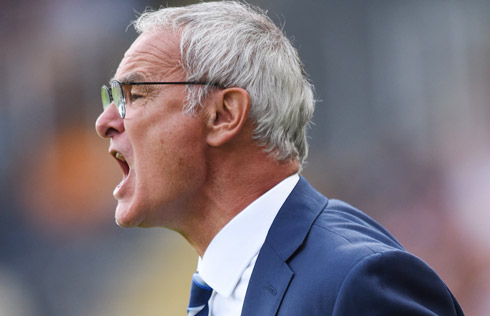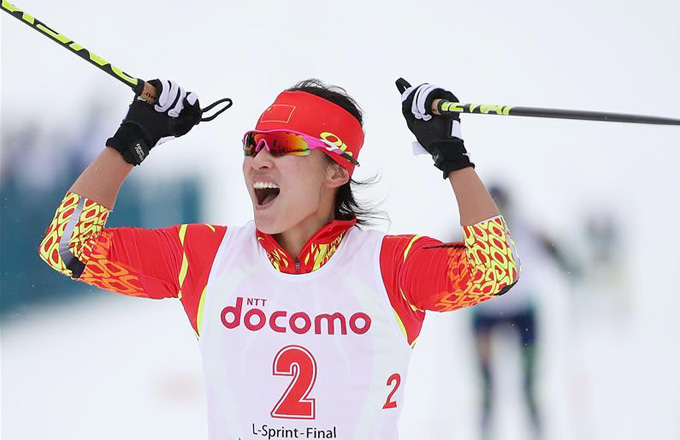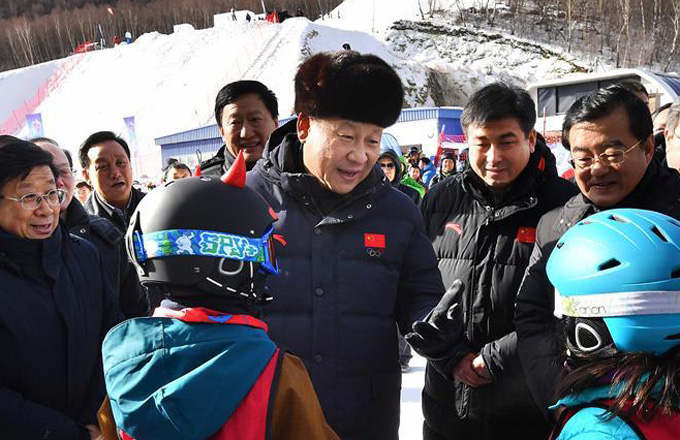Csl: addition by subtraction
Fewer foreigners means more opportunity for homegrown talent, Sun Xiaochen reports.
With new restrictions on foreign imports, the Chinese Super League is tasked with nursing domestic talent in the upcoming season. But the arrival of a new wave of global heavyweights has raised some eyebrows.
Although rumored signings of Wayne Rooney and Diego Costa by free-spending Chinese clubs failed to materialize, the CSL, China's top-flight professional league, kicks off its 2017 season on Friday after once again astonishing the world by inking high-profile foreign players to massive contracts.
Brazilian midfielder Oscar topped the list as the most expensive offseason signing as CSL's Shanghai SIPG spent about $63 million to acquire him from Premier League giant Chelsea in December.
Oscar has been joined by the likes of compatriot Alexandre Pato and Belgian international Axel Witsel, who were purchased by newly promoted CSL side Tianjin Quanjian, as well as Argentine striker Carlos Tevez, signed by Shanghai Greenland Shenhua, now counted among the planet's highest-paid players.
Admitting that the paycheck offered by Shanghai SIPG was irresistible, Oscar holds a positive view of the league's foreign movement.
"Of course the Premier League has more high-level players, but the Chinese guys are very good," Oscar said in a recent Sky Sports interview.
"They help the new players a lot and they are improving. If it continues this way, maybe the league will grow, because it has a lot of good prospects," said the 25-year-old, who is reportedly pocketing $21 million after taxes.
Foreign restriction
There might have been more jaw-dropping signings if not for new rules implemented by the country's top sports body to rein in the CSL's reliance on imported star power.
In January, the General Administration of Sport in China proposed to the Chinese Football Association that a ceiling on the investment in player transfers and salaries should be imposed to curb excessive spending on overpriced foreigners while steering clubs to operational stability.
"The heavy reliance on foreign players under expectation for instant results in the league shall be curbed while more money should be spent on youth training," the administration said.
While stopping short of imposing a salary cap, the CFA echoed the top body's call by issuing a new rule to limit the use of foreigners in domestic matches, aimed at giving homegrown players more minutes.
Starting this season, clubs in the CSL and the country's second-tier competition, League One, will be allowed a maximum of three foreigners on the pitch, down from four, in any game.
They also must include at least two Chinese players under the age of 23 on the 18-man matchday roster, with at least one of them in the starting lineup.
Fan Zhiyi, China's former national captain, supports the rule.
"It encourages the young Chinese players. Foreign stars attract attention to our league, but our own players will be responsible for representing China on the world stage. It's better to take some action than doing nothing" said Fan, who featured at the 2002 FIFA World Cup, the country's only appearance in the global tournament.
"The sentiment is clearly positive because the spending is way out of control. Not just the foreigners, but the salaries of Chinese players were massively inflated compared to the past," said Mark Dreyer, founder of the China Sports Insider website.
There have also been some critical responses.
Some observers argue the restrictions will further drive up the price of domestic talent, and that countermeasures, such as replacing the starting U23 players with foreigners right after the kickoff, might become the norm.
"It's too progressive and goes against the nature of the competition that players earn their place based on their competency. Developing domestic talents should be achieved with patience, step by step, not through administrative orders," said Qin Sheng, a defensive midfielder for Greenland Shenhua.
Youth movement
Meanwhile, as rivals beefed up their rosters with expensive signings, six-time and reigning CSL champion Guangzhou Evergrande stayed restrained during the offseason, bringing in just one foreigner, South Korean defender Kim Hyung-Il.
Highlighted by their convincing victories in the first two group matches at the AFC Champions League, Jiangsu Suning and Shanghai SIPG look set to pose legitimate threats to Evergrande's title defense, but the Cantonese side is unfazed.
Xu Jiayin, Evergrande's owner and one of the China's richest entrepreneurs, claimed during a February mobilization meeting that the club will field an all-Chinese squad in league competition by 2020.
That's an ambitious goal, considering the team won the AFC Champions league in 2013 and 2015 with a roster that was heavily dependent on foreigners.
"After achieving the goal of winning big titles in the first phase of our club's development, we are now shifting the focus to cultivating more homegrown talent while being led by world-class mangers," said Xu.
Evergrande will further invest in its second- and third-tier reserve teams by hiring renowned trainers from Europe, and will open the tunnel to promote promising youth-team players while jettisoning poor performers on the adult squad, said Xu.
The CFA on Tuesday announced the formation of a junior soccer mentoring group composed of 11 former national players and coaches as the implementation of a proposal raised by club representatives and experts at its national congress in January.
The mentors in the group, led by former men's and women's national coaches Qi Wusheng and Ma Yuan'an, will visit 16 locations in eight months this year to guide junior training at ordinary schools while educating local trainers.
"Youth development is the priority on our agenda this year, so we should mobilize all the available facilities and resources nationwide to improve the level of grassroots training," said CFA chief Cai Zhenhua at the launching ceremony of the group. "That's the key for long-term success."





















